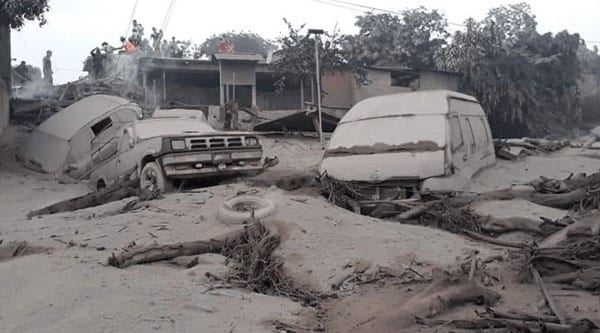Bay of Islands based company Open Ocean says it is pleased the desalination units developed on request of Oxfam in 2014 are still helping to save lives in Tonga today. Over the weekend, Oxfam Aotearoa finally made contact with their partner Tongan National Youth Congress (TYNC), and was told the good news about the desalination units.
Vanessa Lolohea, Director of TYNC, spoke to Humanitarian Lead for Oxfam Aotearoa Carlos Calderon, saying that morale is high despite the circumstances. Lolohea told Oxfam that water is still a critical issue, but they are managing to survive with what little water they have.
Humanitarian Lead at Oxfam Aotearoa Carlos Calderon said:
“Even though we were unable to make contact until recently, we were confident that TNYC would have already stepped in and responded as they know best. We were so pleased to hear that they are using the desalination units to purify salty and seawater and distribute it to the community. TNYC has expressed gratitude upon receiving word that the second Oxfam desalination unit arrived on the NZDF flight and is currently in quarantine.”
General Manager of Open Ocean Daniel Alexander said:
“Our thoughts have been with Tonga ever since we heard, so we are so pleased to hear the units are still going strong after so many years. We are currently building more at the request of Oxfam and hope to have them ready soon.”
Currently, TNYC has established five water stations in Tongatapu for easy access to the community. TNYC said they would look to expand to Haapai and Eua, but sea transport is still a challenge.
Calderon said: “The Eastern Districts on Tongatapu does not have access to drinking water, and water will need to be trucked in over the coming days. Groundwater on the main islands of Ha’apai is also unsafe for drinking due to high saltwater contamination.
“The main island of Tongatapu is covered with 5-10 centimetres of ash, but I’m told that clean-up operations are progressing well, and the runway at the international airport in Tongatapu has been cleared.
“Thanks for the generosity of Kiwis, Oxfam Aotearoa have raised over $40,000 and counting. Tonga will need every penny over the coming weeks.
“It is estimated that some 12,000 households have been affected as crops, livestock, fisheries suffered substantially. Of particular concern is the effect of ashfall on crops and saltwater intrusion, and the potential of acid rain.”
Notes:
Oxfam Aotearoa is currently running an appeal to help bring drinking water to Tonga. Those looking to give can do so here: https://www.oxfam.org.nz/appeals/volcanic-eruption-in-tonga/
Open Ocean have been building desalination units since 2001. In 2014, Oxfam Aotearoa approached Open Ocean to build specially made desalination units after Cyclone Ian ripped through Tonga. Open Ocean is located in Opua, Bay of Islands, New Zealand.
The Oxfam desalination units convert salt water and seawater into drinking water at approximately 240 litres per hour.
Tonga National Youth Congress (TNYC) is one of Oxfam’s local partners in Tonga. Other partners include Tonga National Youth Council, Tonga National Council of Churches (TNCC), Ma’a, Fafine mo e Famili Inc. (MFF), Tonga Leitis Association (TLA) and Civil Society Forum of Tonga (CSFT)
Read more about the work Oxfam does in the Pacific here.






